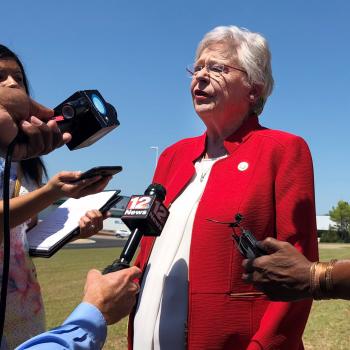By Roberta Rosenthal Kwall.
A Catholic chicken farmer in Kansas is making a revolutionary step forward in kosher eating, and not just because of what he brings to the dinner table.
The Good Shepherd Poultry Ranch will be shipping 1,500 of its chickens in May to a rabbinically-supervised slaughterhouse in upstate New York, making kosher heritage poultry available for commercial sale for the first time since the advent of factory farming.
The proprietor of the Good Shepherd ranch, Frank Reese Jr., is a Catholic with roots in Kansas that pre-date the Civil War. His hundred year-old farmhouse is filled with Catholic statuettes and family heirlooms. He even spent a year in a monastery.
Both the Catholic and Jewish religions share a strong history of ritual and tradition at the dining table. The Lenten season traditionally supports restrictions on consuming meat or another food on Fridays and Canon law still requires that Catholics abstain from eating meat on Fridays throughout the year. Jewish law maintains a host of rules known as kashrut concerning the consumption and preparation of food. Chickens, unlike pigs, are a kosher food but they must be ritually slaughtered in order to be kosher.
Across America generally, there has been a huge surge of interest in organic and sustainable eating, and in the ethical treatment of animals. But Judaism’s concern for animals is not new—it dates back to the Torah. The Jewish Initiative for Animals builds on this foundation by educating Jews about humane eating and the problems with factory farming.
Reese says he loves that his animals “are going to people who respect their food, and who realize that what they choose to eat affects creation for the next generation.” This intelligent framing of the dietary laws should serve as a wake-up call for those Jewish Americans who do not keep kosher. According to the 2013 Pew Report, although 94 percent of American Jews say they are proud to be Jewish, only 22 percent say they keep a kosher home.
This discrepancy between what the religious law requires and what the people actually practice is also familiar to Catholics, which is another important similarity between these religions. The extensive number of traditions and cultural practices have made it possible for both Catholics and Jews to support strong “Catholic” or “Jewish” identities without adhering to the letter of the religious laws.
In Judaism, the extensive legal system that has developed over the millennia extends far beyond ritual practice and covers virtually all aspects of human behavior including ethics, sex, and even the order in which one puts on and ties shoes.
A major problem, though, is that for the vast majority of American Jews, including many who say they believe in God, the concept of Jewish law as binding authority simply does not resonate. I co-directed a center for Jewish Law and Jewish Studies at my Catholic university for six years and the most common question I received, even from somewhat knowledgeable Jews, was “why is Jewish law binding today?”
This question is not surprising given that we live in a society infused by autonomy and customization. The prevalence of “cafeteria Judaism” is part of what frustrates so many Jewish professionals in their search for how to promote a greater interest in Judaism among their constituencies. This phenomenon also is familiar to many Catholic clergy and professionals.
But in speaking with and teaching Jews from a variety of backgrounds and levels of education, I began to notice a shift in understanding when I replaced the off-putting language of “Jewish law” with the more comfortable and familiar language of “Jewish tradition.”
The language of “law” suggests iron-clad rules and consequences for disobedience that are foreign to all but the most observant Jews. But “tradition” connotes positive associations and the desire for transmission. This might be a middle ground for Catholics as well, who seek to honor canon law even as they find its exactitudes incompatible with modern living.
I believe those Jews who are proud to be Jewish need to consider their obligation to the tradition, even if they do not feel bound to observe the law as fully as more observant Jews.
This obligation to preserve the tradition, as opposed to following every jot of the law, can also help Jewish educators instill a sense of accountability to maintain the fundamentals of the tradition that have shaped and molded the Jewish people throughout the millennia. As Frank Reese well knows, the dietary laws are a core element of this tradition.
Kosher practice means different things to different people. Some Jews just buy kosher meat but do not keep two sets of dishes or otherwise separate meat from dairy; some Jews buy only foods that are certified as kosher while others read ingredients on food labels and avoid those products that contain blatantly non-kosher items. Some Jews make an exception for wine. There are also more than a few Jews who keep a generally kosher home—complete with separate plates and cabinets—but are more relaxed in their practices when eating outside their homes.
These liberal variations ought not be seen as a negative. I see this diversity as a way to open the door for more Jews to begin thinking seriously about their obligation to perpetuate the Jewish tradition and how adhering to selected aspects of kashrut fit within this obligation.
The news from Good Shepherd Poultry Ranch provides a welcome message from a member of the Catholic faith of why keeping kosher—or at least keeping mindful of its timelessness—is an important means of expressing one’s Jewish identity.
Roberta Rosenthal Kwall is the Raymond P. Niro Professor at DePaul University College of Law. She is the author of The Myth of the Cultural Jew: Culture and Law in Jewish Tradition (Oxford U. Press, 2015).













